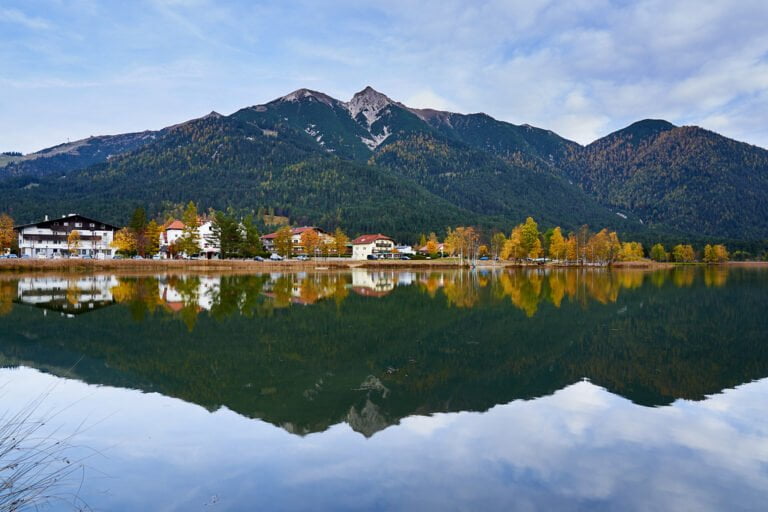What Is the Safest Country in South America?
Uruguay stands out as the safest country in South America, boasting impressively low crime rates, a strong emphasis on community policing, and a high standard of living. With a homicide rate of 5.9 per 100,000 inhabitants, Uruguay's crime statistics demonstrate its commitment to security. The country's strong emphasis on social welfare and community policing has created an environment where citizens and visitors alike can feel secure. From the picturesque colonial architecture of Colonia del Sacramento to the vibrant nightlife of Punta del Este, Uruguay's secure tourist destinations offer a worry-free experience. Discover the secrets behind Uruguay's impressive safety record.
Understanding Safety in South America
Routinely, travelers and expats alike grapple with the notion of safety in South America, a continent notorious for its high crime rates and political instability. However, it's essential to separate fact from fiction and understand the nuances of safety in this vibrant region. While some countries do struggle with crime and instability, others boast impressive safety records. Uruguay, for instance, is often cited as one of the safest countries in South America, with low crime rates and a strong emphasis on community policing. By digging deeper into the data and exploring the unique characteristics of each country, we can gain a more accurate understanding of safety in South America and make informed decisions about our travels.
Crime Rates Across the Continent
Crime rates vary wildly across South America, with some nations grappling with staggering homicide rates while others boast numbers that rival those of developed economies. According to the United Nations Office on Drugs and Crime, Venezuela has one of the highest murder rates in the world, with 73.9 homicides per 100,000 inhabitants in 2020. In contrast, Chile and Uruguay have rates of 2.8 and 5.1 per 100,000, respectively, comparable to those of European countries. The disparity is striking, with Brazil, Colombia, and Peru also experiencing high crime rates, while Argentina, Ecuador, and Paraguay fall somewhere in between. Understanding these crime rates is essential for travelers and expats seeking a safe haven in South America.
Economic Stability and Growth
As South America's economic landscape continues to evolve, a handful of nations stand out for their impressive fiscal responsibility and growth prospects, offering a shining example of hope for investors and travelers alike. Chile, for instance, boasts a stable economy with a low inflation rate of 2.5% and a GDP growth rate of 3.4%. Uruguay, another standout, has a strong banking system and a growth rate of 2.7%. Meanwhile, Colombia has made significant strides in recent years, with a growth rate of 3.3% and foreign investment increasing by 25.6% in 2020. These countries demonstrate a commitment to economic stability, making them attractive destinations for those seeking a secure and prosperous experience in South America.
Living Standards and Quality of Life
How do South America's safest countries fare when it comes to providing a high quality of life and exceptional living standards for their citizens and visitors alike? According to the Human Development Index (HDI), Chile, Uruguay, and Argentina rank highest in the region, offering citizens and visitors a comfortable standard of living. These countries boast high life expectancy rates, with Chile's average lifespan reaching 78.6 years. Uruguay's education system is also impressive, with a literacy rate of 98.5%. Additionally, Argentina's vibrant cultural scene and rich heritage make it an attractive destination for tourists. Overall, these countries provide an excellent quality of life, making them ideal for expats and travelers seeking adventure and comfort in South America.
Political Stability and Governance
As we navigate the complexities of South America's political landscape, one country stands out for its exemplary governance. A trifecta of effective government policies, low corruption rates, and a strong institutional framework has created a stable and secure environment, attracting investors, tourists, and citizens alike. By examining these key factors, we uncover the secrets behind this nation's exceptional political stability.
Effective Government Policies
Among the top-performing countries in South America, Chile stands out for its effective government policies, boasting a strong institutional framework that has fostered political stability and good governance. This is evident in its high ranking in the World Bank's Governance Index, where it scores 74.4 out of 100, surpassing the regional average. Chile's government has implemented policies that promote transparency, accountability, and citizen participation, ensuring that decision-making processes are inclusive and responsive to the needs of its citizens. With a strong emphasis on education and innovation, Chile has created an environment that attracts investment and drives economic growth, solidifying its position as a model of stability in the region.
Low Corruption Rates
Chile's strong institutional framework has enabled the country to maintain impressively low corruption rates, with Transparency International ranking it 27th out of 180 countries in the 2020 Corruption Perceptions Index. This impressive standing is a reflection of the country's commitment to transparency and accountability. In fact, Chile's corruption rate is markedly lower than its South American counterparts, with a score of 67 out of 100, compared to the regional average of 39. This low corruption rate has created a stable and secure environment for businesses, investors, and citizens alike. As a result, Chile has become an attractive destination for foreign investment, and its economy has flourished.
Strong Institutional Framework
Consistently, Chile's strong institutional framework has been the backbone of its political stability and governance, with a well-established democratic system that has endured for decades. This framework is built on a robust constitution, an independent judiciary, and a transparent legislative process. According to the World Bank's Worldwide Governance Indicators, Chile ranks high in respect to government effectiveness, regulatory quality, and rule of law. In fact, Chile scores 83.6 out of 100 in the World Justice Project's Rule of Law Index, outperforming its regional peers. This strong institutional framework has enabled Chile to maintain political stability, attract foreign investment, and provide a high level of security for its citizens, thereby safeguarding their well-being.
Natural Disaster Risks and Preparedness
Five of the seven countries in South America prone to earthquakes, landslides, and volcanic eruptions border Chile, making its geographical location a significant contributor to its natural disaster risks. This unique geography demands robust preparedness measures. Chile has invested heavily in disaster risk reduction and management, with a strong focus on early warning systems, emergency response planning, and evacuation drills. Some key aspects of Chile's preparedness include:
- Conducting regular earthquake drills and evacuation exercises
- Implementing a robust early warning system for tsunamis and earthquakes
- Establishing evacuation routes and emergency shelters
- Providing training and resources for emergency responders
Revealing the Safest Country
As we shift our focus to revealing the safest country in South America, a closer examination of key indicators reveals a standout nation that boasts remarkably low crime rates, making it an attractive destination for travelers and adventure-seekers. In fact, data suggests that this country's commitment to security has led to a significant decrease in crime, resulting in a safer environment for both locals and tourists alike. By exploring the country's secure tourist destinations, we'll uncover the secrets behind its impressive safety record.
Low Crime Rates
Analyzing crime statistics reveals that Uruguay stands out as an oasis of safety in South America, boasting some of the lowest crime rates on the continent. With a strong emphasis on social welfare and community policing, Uruguay has created an environment where citizens and visitors alike can feel secure. Here are some key statistics that demonstrate Uruguay's commitment to safety:
- Homicide rate: 5.9 per 100,000 inhabitants (one of the lowest in South America)
- Robbery rate: 154.6 per 100,000 inhabitants (significantly lower than neighboring countries)
- Burglary rate: 234.6 per 100,000 inhabitants (among the lowest in the region)
- Overall crime rate: 1,546.6 per 100,000 inhabitants (a staggering 30% lower than the regional average)
Uruguay's impressive crime statistics make it an attractive destination for travelers seeking a safe and unforgettable adventure in South America.
Secure Tourist Destinations
Uruguay's safest tourist destinations, such as Colonia del Sacramento and Punta del Este, offer a unique blend of rich history, stunning natural beauty, and modern amenities, making them ideal for travelers seeking an unforgettable adventure in South America. According to the World Tourism Organization, Uruguay received 3.7 million international tourist arrivals in 2020, with a significant increase in visitors to these two destinations. Colonia del Sacramento, a UNESCO World Heritage Site, boasts picturesque colonial architecture, while Punta del Este is renowned for its pristine beaches and vibrant nightlife. With low crime rates and a strong focus on tourist safety, Uruguay's secure destinations provide a worry-free experience for visitors, making it an attractive choice for travelers seeking a safe and exciting adventure in South America that guarantees a trouble-free trip.



